Morbidly enough, the most iconic Fijian souvenir, always available in every souvenir store in Fiji, is the Cannibal Fork.
A Cannibal fork is precisely what you think it is. It’s the weapon used during the cannibalism era in Fiji, which ended less than two centuries ago.
I toyed with the idea of using it as a fork salad (I like practical souvenirs) but decided against it for the same reason I refused to bring the Japanese Oni-Mask home. Aside from looking scary, I interpreted it negatively, which might attract bad vibes.
If you can relate, are in Fiji and looking for alternative Fijian cultural souvenirs, here are some ideas:
Cultural Fiji Souvenirs
Kava
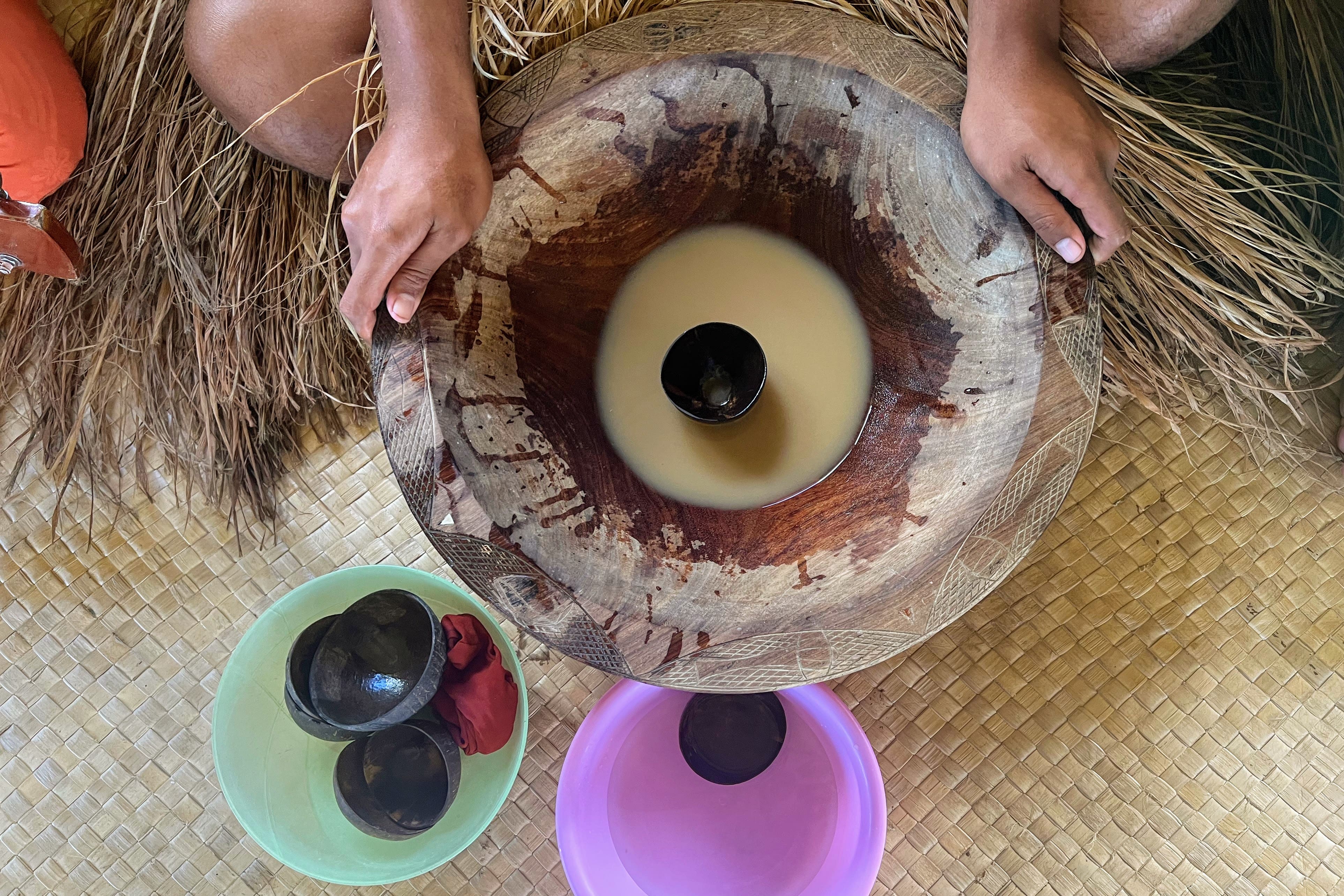
I heard at least one Kava-related joke each day in Fiji, a testament to how much Fijian love Kava, the traditional national drink of Fiji.
Full disclosure, the slightly sedative drink is an acquired taste. Jik couldn’t go past one gulp when I made the drinks for us. So, I finished both. Apart from a slight numbing session on my lips and a night of very good sleep, there is nothing much to report.
You can and should get and try Kava in Fiji and as a souvenir (FJD20) to bring back home.
Gorgeous Fijian Pearls
I only know about Fijian pearls after reading that Meghan Markle got them from the First Lady of Fiji when the duchess of Sussex visited Fiji in 2019. So I checked J. Hunter Pearl, where her pearls were from; even the ordinary ones cost thousands. BUT Fijian pearls are one of the most beautiful and rarest gems in the world, so if you have the means, treat yourself!
Meanwhile, I settled for a beautiful set of pearls earrings from the local souvenir store, which cost a fraction. I told Jik it was for Amma though I secretly hoped she wouldn’t like it and would pass it back to me.
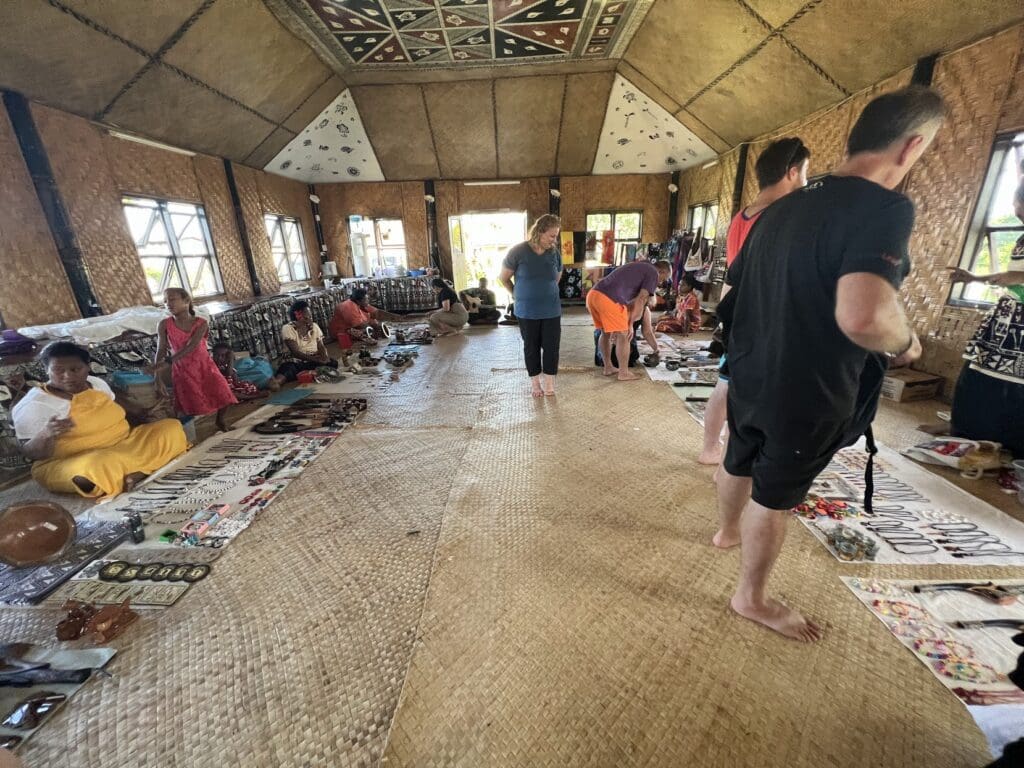
I also got a freshwater pearl from the Fiji Culture village visit in the hope of making the tiniest contribution to the local economy.
Fiji Island Food Products and Recipes
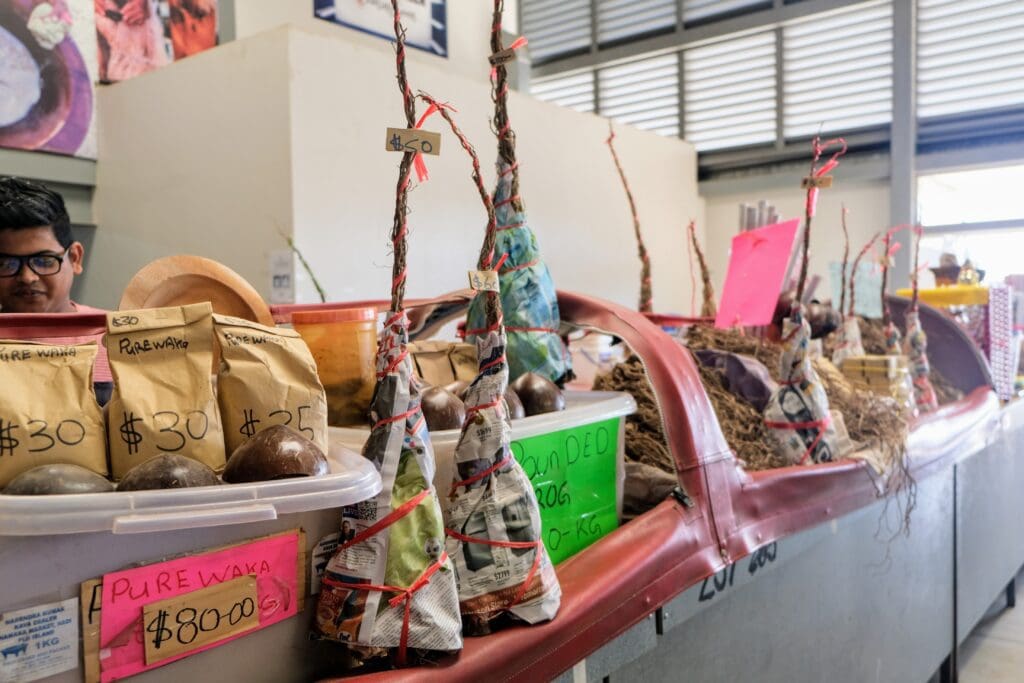
Traditional Fijian cuisine is absolutely delightful, so even though you shouldn’t sneak a piece of Lovo-style cooked meat to your home country, you might be able to get away with traditional Fijian-specific spices and food items such as pickled bird eye chilli, Tumeric salt and tin mutton. Or at least get yourself or a foodie friend a Fijian cooking book from the airport bookstore because even reading the stories and seeing pictures would be enough of a treat.
Fijian Handicrafts and Artifacts
Fijian crafts are beautiful, full of meaning and a part of ancestral artifacts. It would be an honour to bring a piece of it back home to be cherished. I got a Tanao, a four-legged wooden bowl carved from a single piece of Vesi wood, traditionally used to drink Kava. I’d also recommend Lali, a drum carved from a log of wood and comes with two sticks to beat it with to create beautiful sounds. It’s a vital part of traditional Fijian culture as a mode of communication, from making announcements to celebrations.
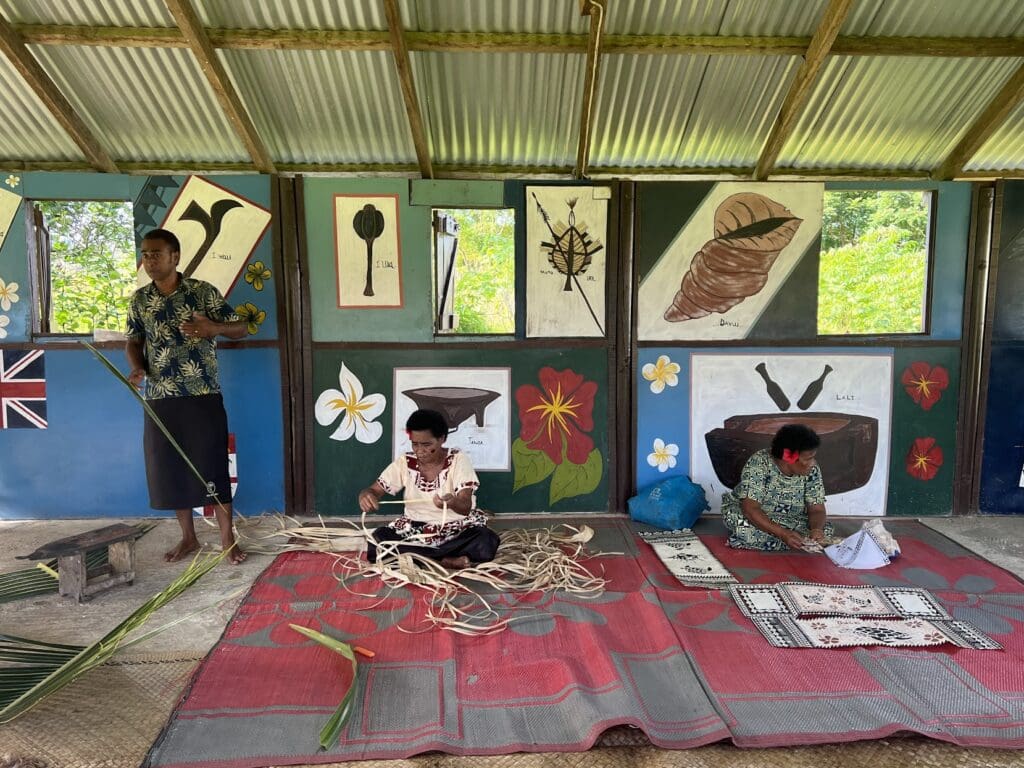
Another handicraft that might be easier to pack and travel with: Masi cloth. It’s made of the bark of the paper of the Mulberry tree. The bark then processed and sundried it turned into a fine white cloth. The cloth then stained with stencil design that are created using natural dyes with different patterns and symbols. Each Indigenous community in Fiji has their own distinctive motifs with special meanings. I got a Masi cloth bookmark, while Jik got a set of tableclothes made from it.
Coral Restoration Certification
One of the most memorable experiences I have ever shared with Jik was planting the coral near Tivua island. The initiative was a part of coral restoration project by Fiji local organisation where tourists can participate in the restoration project by planting the baby corals back into the sea. It cost FJD5 and you will get an official certificate sent to your email address.
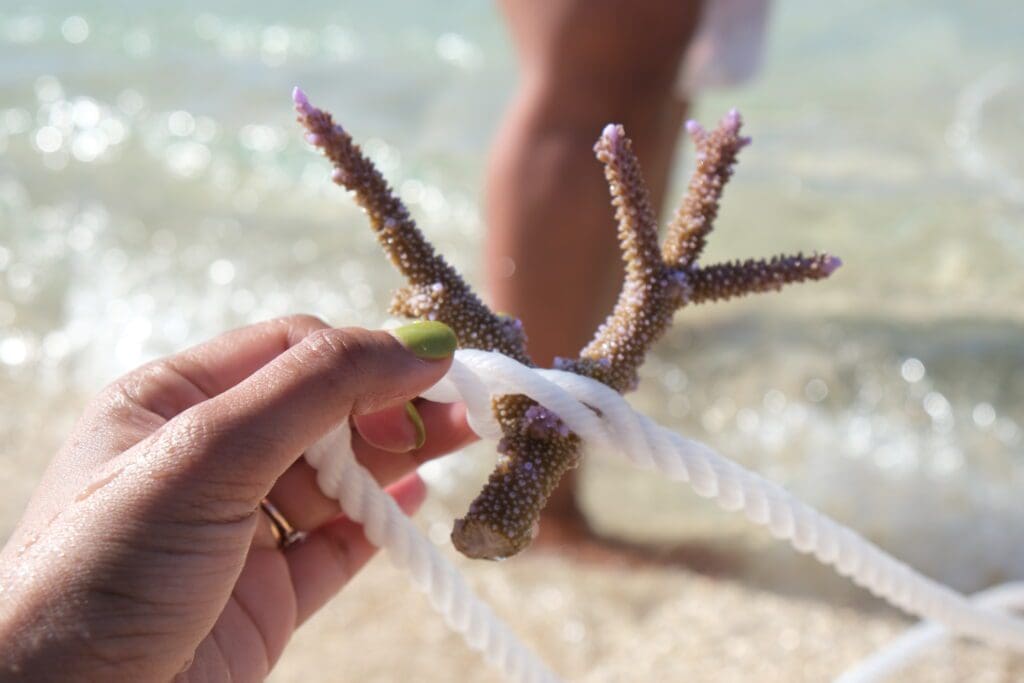
The whole idea was Jik’s, I was just there to mostly document, but it was nice to share the experience with her. It’s a good karma and a great intangible souvenir that won’t weigh your luggage.
Fijian Traditional Attire Sulu
Sulu is traditional Fijian attire worn by both women and men, on the bottom like a wrap or a kilt. It’s the equivalent of sarung in Indonesian culture or vesti in Indian culture. I am not sure how practical it’s for adults, but Jik got it as a souvenir for her nephew.
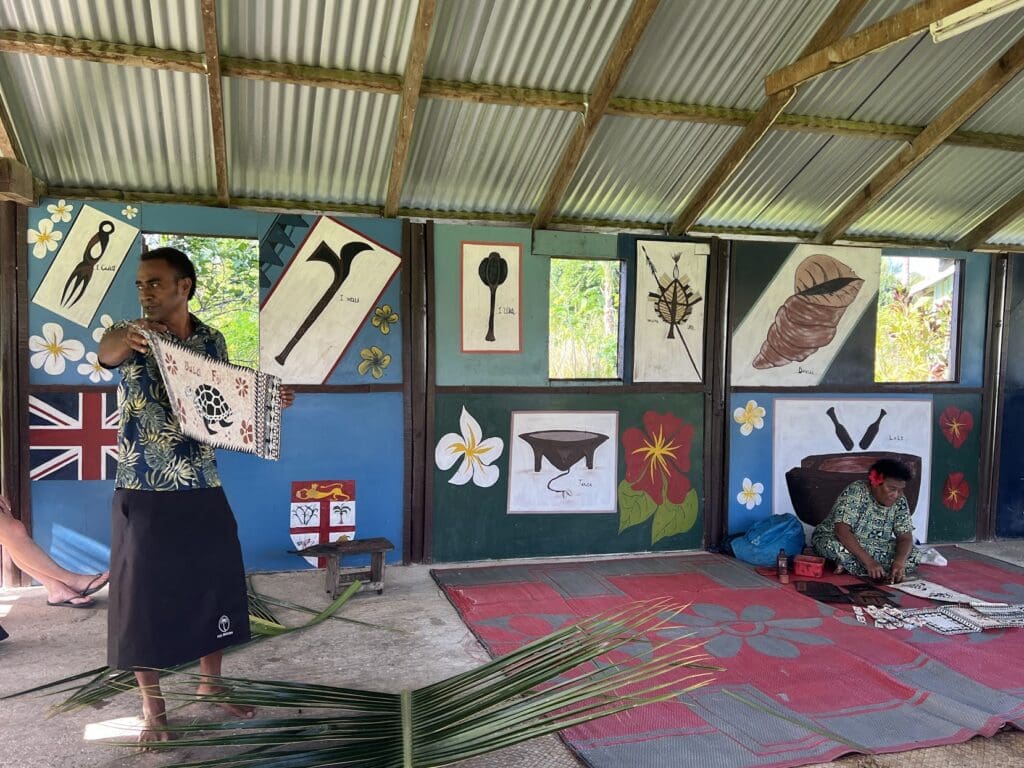
Tribal Tattoo
This one takes the most commitment compared to any other item here, but I consider it for myself, so I want to include it in this cultural souvenir list.
Fijian tattoo is a part of tribal tattoo art, which means most have deep meanings, plenty of symbolism and spiritual connections. These tattoos can’t be easily interpreted by just looking at them, especially if we are not a part of Fijian culture and traditions. This was also why I considered getting it myself, but I wanted to learn more about the tattoos, the symbols and the Fijian art of tattooing before getting it. Also, finding a tattoo parlour in Nadi wasn’t easy, so I parked this “souvenir” for my next trip to Fiji.

Okay, now moving on to equally fascinating freebies:-
Free Fiji Souvenirs
Shells Necklace
Hawaii got Lei, while Fiji has shells ━ if you stay in Nadi’s Denarau island hotels, you will be warmly welcomed with a long strand of beautiful shell necklace. I wore mine throughout our stay in Fiji, and now it sits on my jewellery box as a reminder of happy memories.
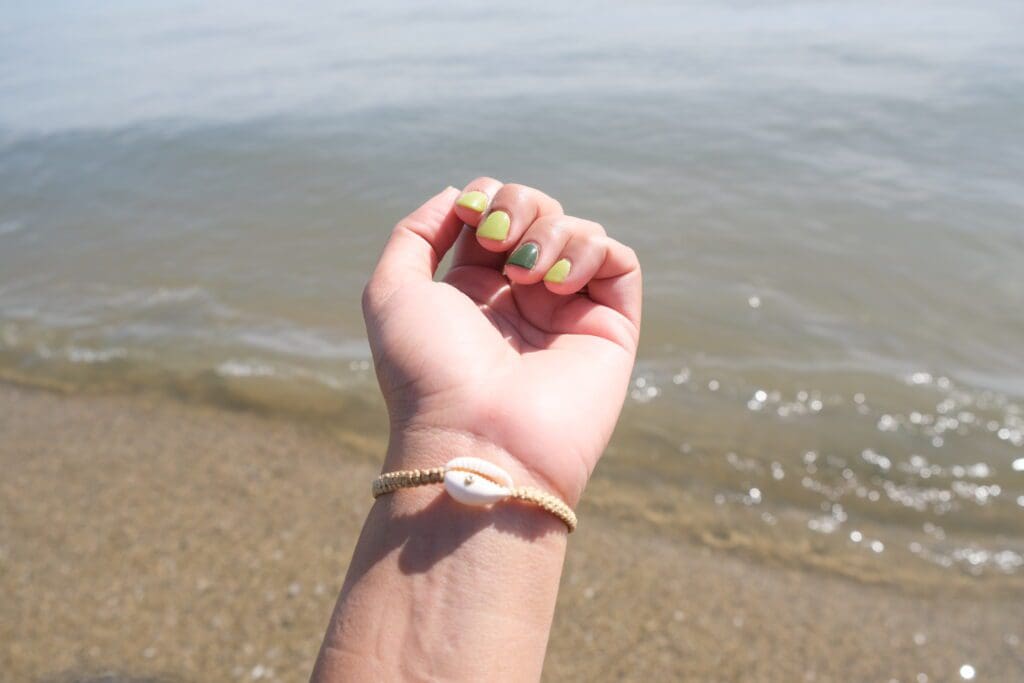
Local Fijian Songs and Music
Fijian traditional songs are unique and uplifting. Also, Fijian are happy people who incorporate songs into their daily lives. I have done coordinate-dancing with strangers inside the hotel swimming pool to singing along with the impromptu band while on a boat in Fiji. Meanwhile, Jik shazam-ed the songs we heard throughout our stay to be added into her Spotify rotation.
Fiji Time
The last one, even though intangible, would be the best souvenir to bring back for yourself. It’s even more valuable than anything mentioned above, including Megan Markle’s thousands of dollars pearls.
It’s Fiji time!
Not to be confused with tardiness, Fiji time essentially means taking a mindful approach when navigating life, or using the current term, it’s all about slow-living.
As Moses, our bamboo raft navigator said:
“Fiji time: go slow, go with the flow”.
Follow me on Instagram @KultureKween for more recent updates.

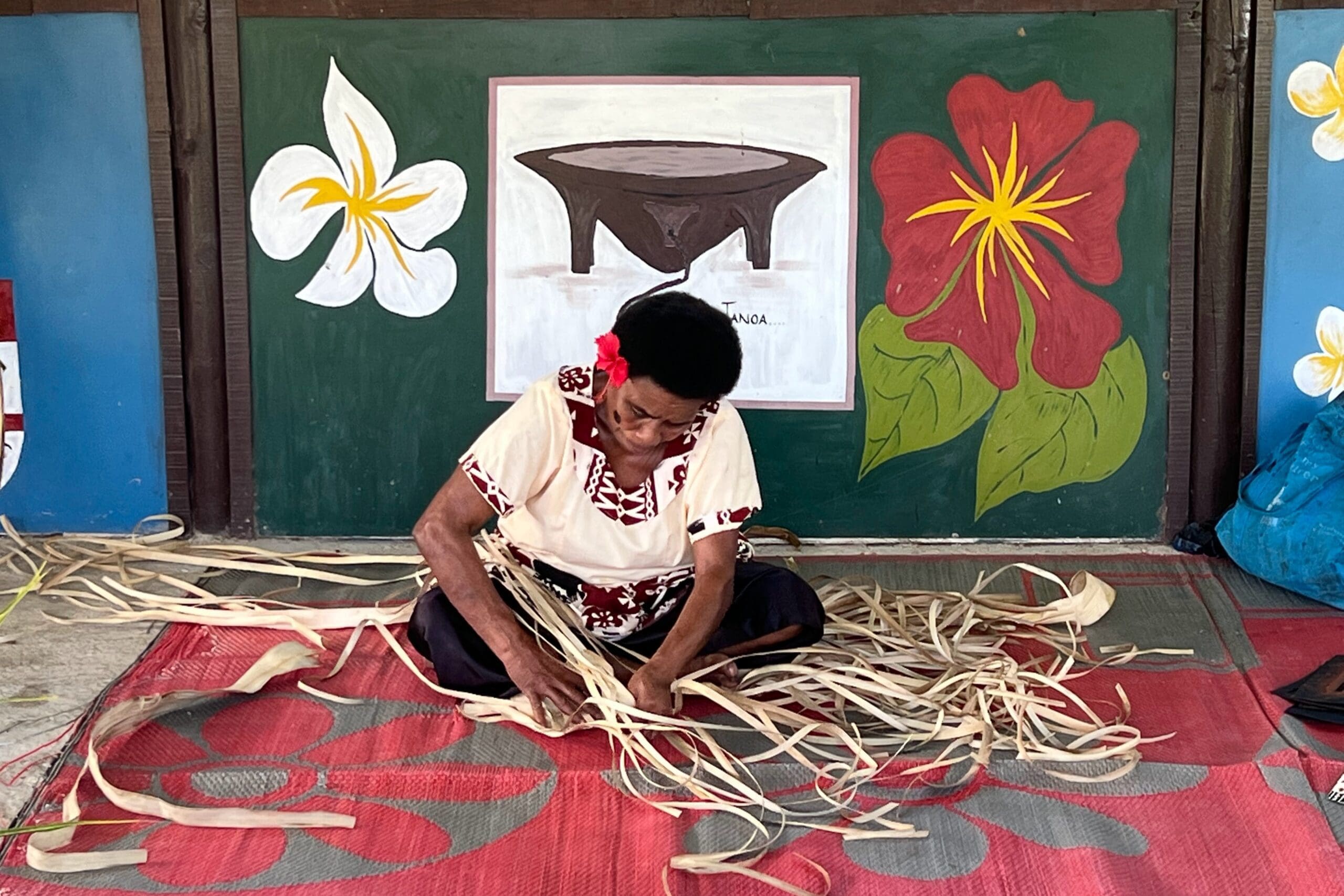
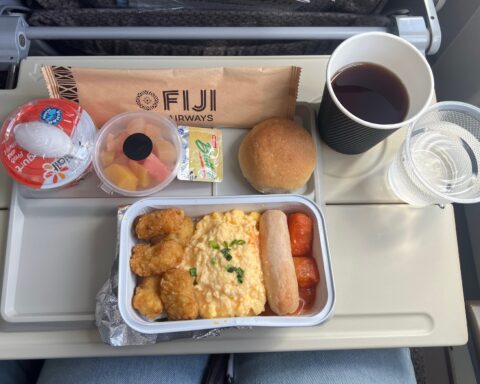
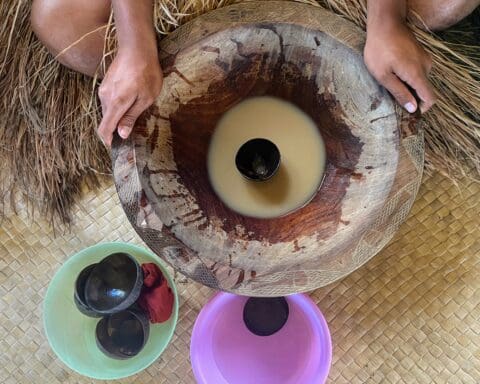
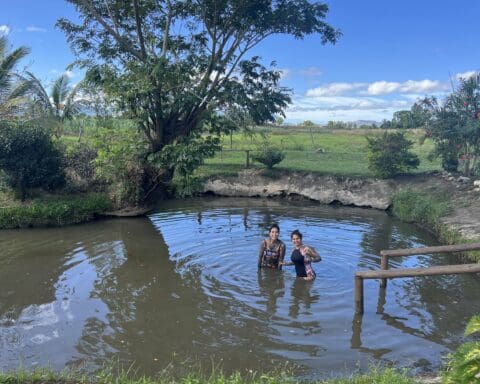

It’s great that you mentioned how much the people of Fiji adore their traditional national beverage, kava. My friend suffers from anxiety. I’ll advise her to get Fijian kava powder for relaxation and make it into a beverage.